How Healthy Eating Affects Your Happiness : You are what you eat, and the foods and beverages you choose can play a significant role in your mood. Most people know the basics, like if they reach for refined sugars for a quick snack, they might enjoy a burst of energy (often a placebo effect) followed by a “sugar crash.”
Although the idea that sugar causes excessive energy has been debunked, we do know that refined sugar is considered the same as cocaine by your brain. It’s highly addictive, has zero nutritional content, and leaves us wanting more. That was great for our ancestors who needed to seek out high-calorie foods at all costs to survive, but we don’t need that kind of low-quality “nutrition” anymore.
However, nutrition therapy goes a lot deeper than choosing an apple over a doughnut to get over the mid-day slump. If you’ve ever been “hungry,” there’s science behind it. But first, you want to make sure you’re not at risk of diabetes. This will require a fasted blood check with your doctor. Blood sugar dips can certainly lead to hungry feelings, and it’s a hallmark of diabetes—but it’s also common for those without the disease.
The University of Illinois Extension research team found that if you space out meals and snacks throughout the day, it helps keep your blood sugar and your mood steady. Those recommended six small meals per day do more than just keep you feeling full. It helps you to feel satiety throughout your waking hours and helps you to avoid being frustrated.
Unfortunately, there’s been a large push in recent years to practice intermittent fasting. This is a technique some bodybuilders use to maximize fat loss and building muscle, but even though don’t fast on a daily basis. It’s also common for many Americans to skip breakfast only to over-indulge later in the day. According to the Mayo Clinic, skipping meals isn’t a good idea because it makes your body think you’re starving (again, it happened with our ancestors, and the body has yet to keep up). Not only will skipping meals put you in a bad mood, but it also makes your body cling tighter to fat because it’s helping to protect you from that impending starvation.
Foods to Skip
Just as important as eating the right foods to steady your diet and give you a natural high is knowing what to avoid. Refined carbohydrates, whether it’s a candy bar, rice, or bread, are all major offenders. These simple sugar make your blood sugar fall and spike, which directly impacts your mood. Many people think “sugar” is just the granulated sweetener in desserts. However, simple carbs (white starches) immediately turn into sugar at the start of the digestive system. As far as your body’s concerned, there’s no difference between sugar from a Snickers and a slice of bread.
The Cleveland Clinic has undertaken studies that show that while junk food temporarily makes you feel good, it doesn’t actually improve your mood. Instead, it might make you crankier because the addiction of sugar makes you want more. When you’re considering meal and snack option, choose foods that are complex and offer a wide variety of nutrients. However, you don’t need to avoid sugar altogether. You can certainly treat yourself, and when you do, it’s better to go with “real” sugar rather than artificial sweeteners. Your taste buds might not know the difference, but your brain does—and it will encourage you to keep eating more, getting aggravated that it’s not getting the full experience of real sugar.
The Good Stuff
There are plenty of foods that will improve your mood and put a smile on your face. Protein is one of them because it slows down carbohydrate absorption and increases the long-term release of dopamine (the feel-good hormone). Protein can come in many varieties, from your staple meats to a variety of vegetarian and vegan choices. Most Americans don’t have enough protein in their diet. The average person needs at least half their weight in grams per day, so 75 grams for a 150-pound person. If you want to increase muscle mass, then aim for the same grams per day as your weight in pounds.
However, not all protein is created equally. Red meat can be dangerous in large doses. Instead, omnivores should aim for seafood, poultry, tofu, eggs, whey products and pea protein. It’s also important to consider where your protein is coming from if you’re eating meat or dairy. Many studies have shown that how the animal is processed plays a huge role in the quality of the final food product. Happier animals simply make better food. Try seeking out a local farm where you can actually see how the processing works, and know for certain the animals are local, truly free-range (it doesn’t always mean much), and well cared for. That can make a big difference in taste and your experience with the meal.
Vitamins can also play a role in nutrition for happiness. It’s pretty challenging to get all the nutrients you need through meals alone while staying in a reasonable caloric range. Many people suffer from a Vitamin D deficiency, especially if you live in a cloudy region. Ask your doctor for a full-panel deficiency screening. You can get Vitamin D naturally through sunlight, milk, and egg yolks. A deficiency in folate and B-12 can also be troublesome, leading to depression. You’ll find these nutrients in broccoli, dark and leafy vegetables, oranges, lentils, and oatmeal. There’s also cottage cheese and salmon.
Swap out your simple carbs for complex carbohydrates that pack a big fiber punch. This also slows down sugar absorption and gives serotonin a boost. This is another feel-good rush that can help stabilize mood swings. You’ll find it in peas and pears, beans, and oats.
There’s no denying that what you consume helps dictate how you feel. You know how you feel when you overindulge in junk food compared to spending a full week eating mindfully and more healthy. There’s also an element of knowing you’re doing right by the environment. By shopping locally, seasonally, and supporting local farmers, you feel better about your meals and help to stimulate your local economy.
Whenever possible, avoid packaged foods and know where your foods are coming from. Explore the world of vegetarianism to force yourself to consider more alternatives and vegetables. Participating in no-meat Mondays is a great start. However, omnivores can always seek out local farms to ease their consciousness and where their meals are coming from.
How you eat is just as important as what you eat. How many times have you sat down to wolf down a meal while staring at your phone? In Ayurveda teachings, the ideal amount of times to chew eat bite is 20. You don’t need to obsess over the number, but it’s a reminder to slow down. Taste your food. Remember that you eat with your eyes first. Savor each bite, and make mealtimes special. Whether you’re dining alone or with others, “setting the mood” can greatly increase the experience and make your mood better. You may not always have time for this, but at the least, you can avoid distractions and eat calmly seated. Some studies show why dining al fresco makes food taste better while improving your mood at the same time. As we enter summer, take every opportunity to dine outside and see what a difference it can make.
As you change what, where, and how you eat, take in mind of your mood. A food journal may help, and can also encourage you to be more adventurous with your eating. Every meal is an opportunity to do better and eat better. How can you make the most of your next meal? Try something different and take note of how it makes you feel.
Related Videos to How Healthy Eating Affects Your Happiness:
How Food Affects Your Mood / Improve Anxiety, Depression & ADD
https://www.youtube.com/watch?v=9MpeSudXyRs?autoplay=1&rel=0
How the food you eat affects your brain
https://www.youtube.com/watch?v=xyQY8a-ng6g?autoplay=1&rel=0
Food and Mood: How Diet Affects Depression (Mental Health Guru)
https://www.youtube.com/watch?v=v5vfoUVY4-4?autoplay=1&rel=0
23 foods to boost your mood – Food for Health
https://www.youtube.com/watch?v=7g9QyK48ZX8?autoplay=1&rel=0
How sugar affects the brain
https://www.youtube.com/watch?v=lEXBxijQREo?autoplay=1&rel=0
How to manage your mood with food
https://www.youtube.com/watch?v=MIqUtPfFhno?autoplay=1&rel=0
Related Infographics to How Healthy Eating Affects Your Happiness:


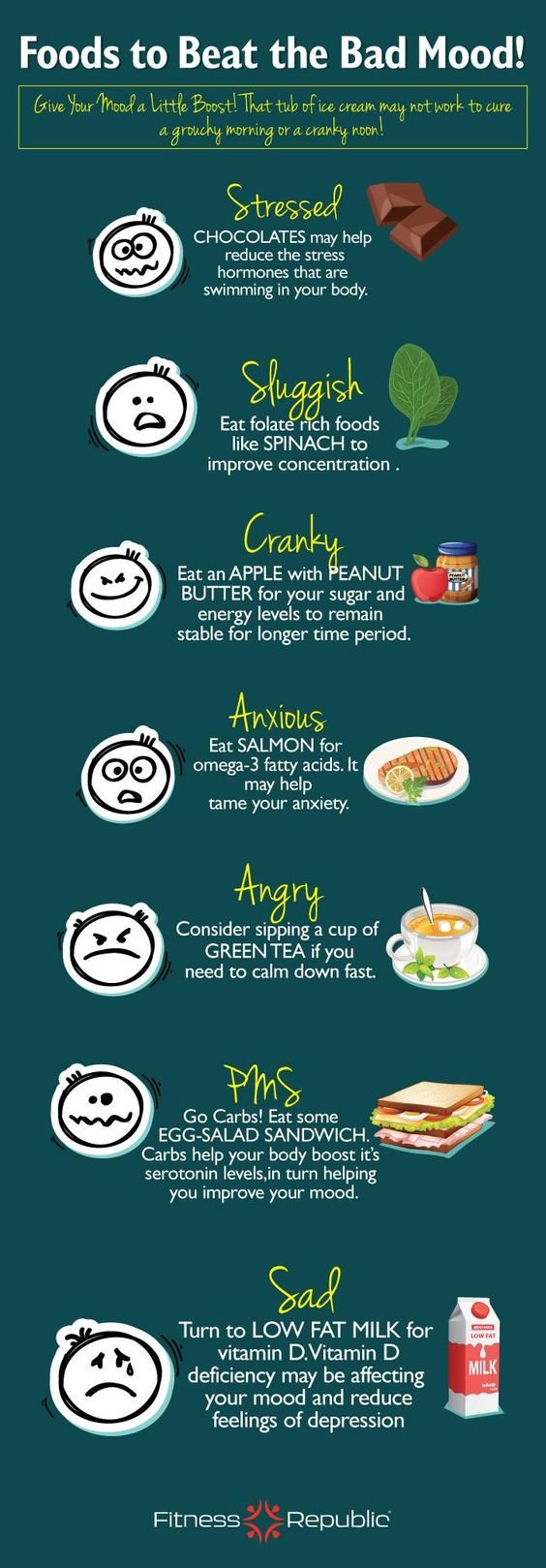
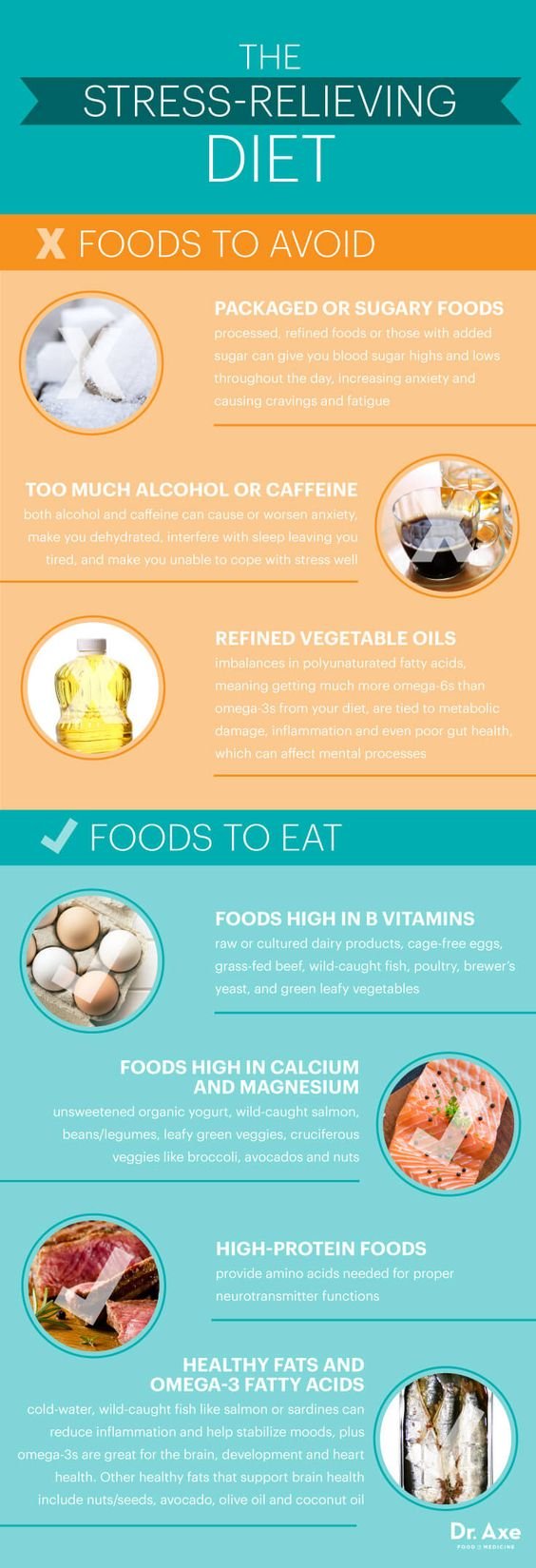
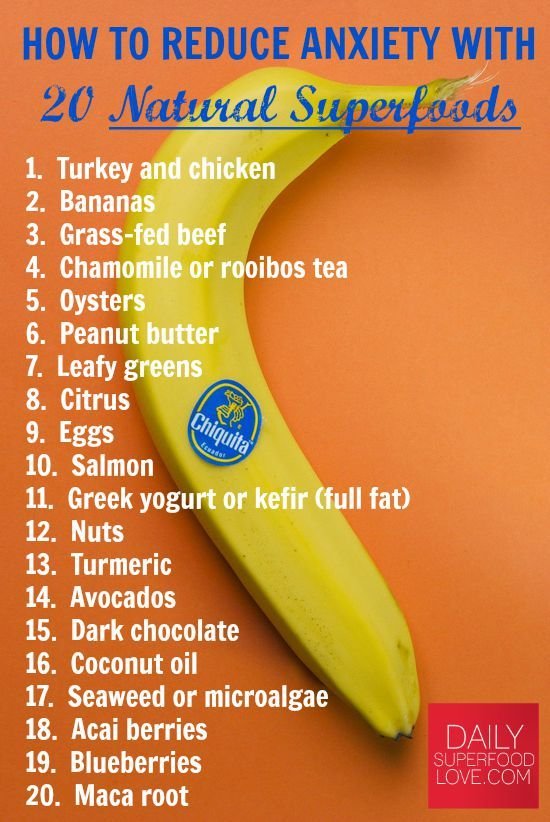
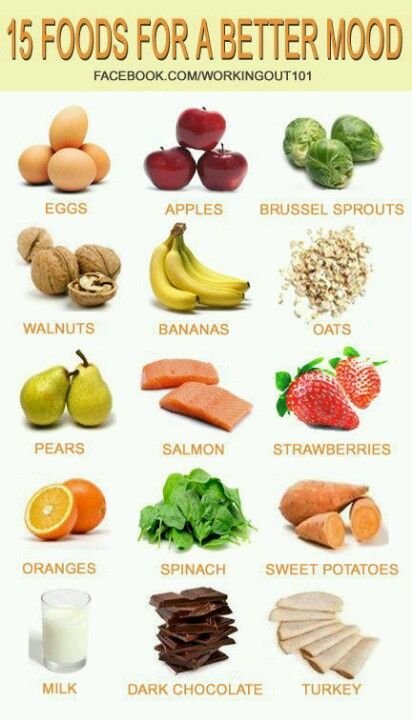
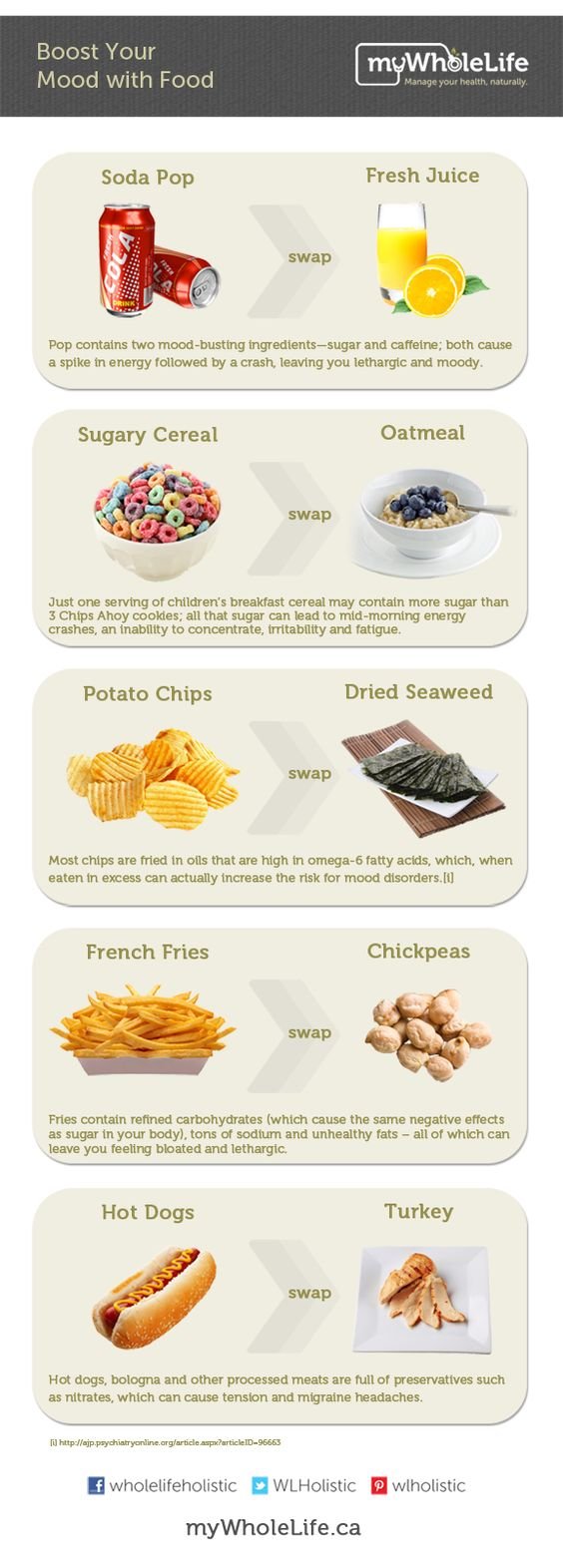
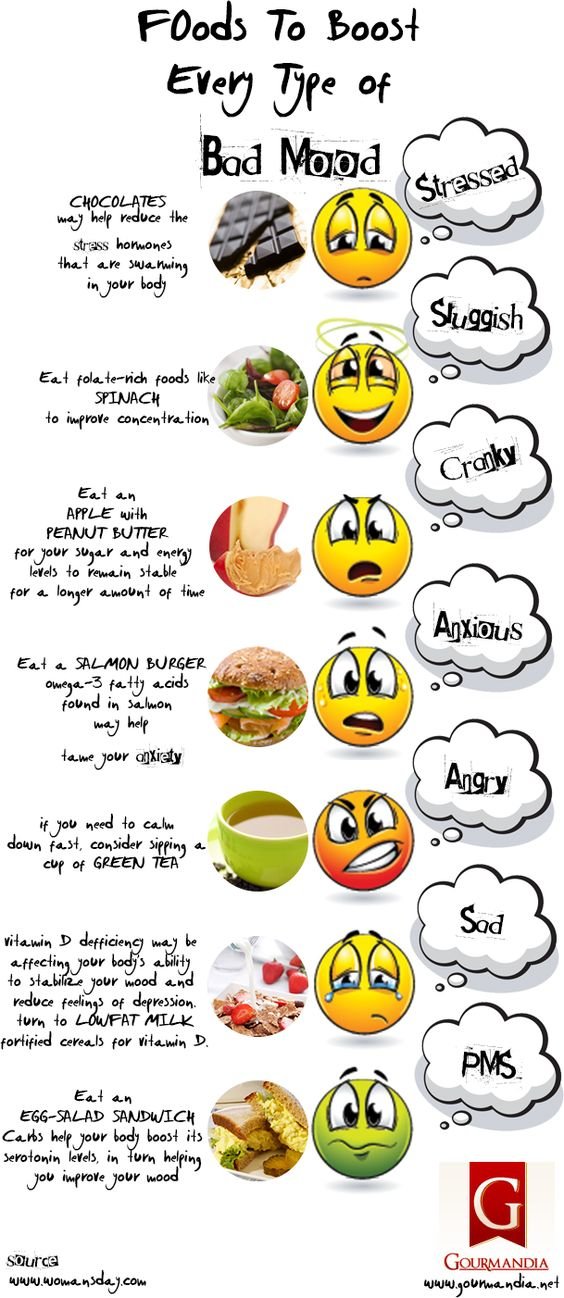

How Healthy Eating Affects Your Happiness
foods that affect your mood negatively, how food affects your mood experiment, food and mood mental health, food and mood connection, foods that alter your mood, food and mood chart, how food affects your brain, how food affect your mood essay, How Healthy Eating Affects Your Happiness




